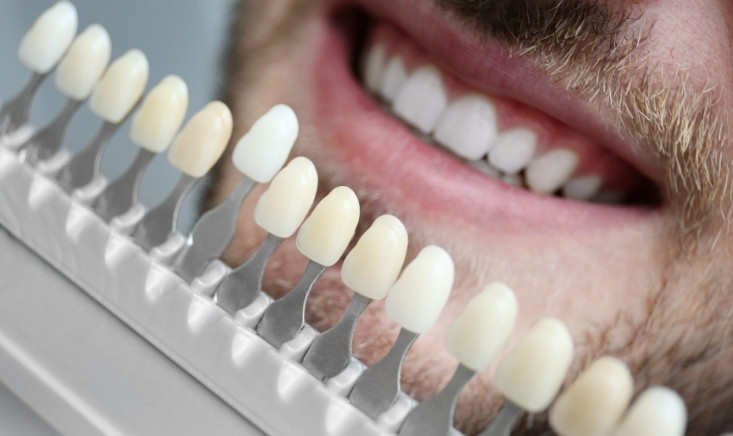How Do You Maintain Veneers?

Veneers are revolutionary procedures for providing a perfect and natural-looking smile. However, you need to take good care of the veneers to enjoy their maximum benefits for the longest time.
Without the right care, veneers will lose their luster and can even get damaged. In this blog, you will get detailed information on how you should maintain your veneers.
How to Maintain Veneers?
Address Common Veneer Issues
Even with good maintenance, veneers can develop some problems over time. Understanding how to deal with them can avoid additional damage.
- Loose or moving veneers – If your veneer feels loose, stop chewing on that side and call your dentist immediately.
- Chips or cracks – Although porcelain veneers are durable, they are not invincible. When a veneer chips, visit your dentist for a potential repair or replacement.
- Discoloration – While veneers are resistant to stains, the bonding cement that secures them can darken with time. With frequent cleaning sessions, you can keep them looking bright.
- Tooth sensitivity – Desensitizing toothpaste can ease your discomfort if you are sensitive to hot or cold foods.
Practice Daily Oral Hygiene
Regular oral care is important to keep your veneers and natural teeth clean and damage-free. Here’s how you should do it:
- Brush twice a day – Use a soft-bristled toothbrush and a non-abrasive fluoride toothpaste to avoid scratches on your veneers.
- Floss every day – Flossing is necessary to clear plaque and food debris from between your veneers and teeth. Use waxed or tape-type floss to prevent damaging the edges.
- Rinse with non–alcoholic mouthwash – Alcohol-containing mouthwashes can erode the veneer’s bonding material over time. Instead, use a gentle, non-alcoholic rinse to maintain healthy gums and veneers.
- Avoid using too much force – While flossing and brushing, be careful not to apply too much pressure on your veneers near the gum line.
Regular Dental Checkups and Cleanings
Regular dental checkups are necessary for maintaining your veneers in great shape.
- See your dentist every six months – Professional cleanings eliminate plaque buildup that regular brushing might not catch. So, visit your dentist frequently.
- Request non-abrasive polishing – Some cleaning pastes are too abrasive for veneers. Ensure your dentist applies a veneer-friendly polish.
- Inspect for early signs of wear – Your dentist can identify tiny chips, cracks, or bonding problems before they become big issues.
- Keep your gums healthy – Healthy gums are the foundation of veneers. Regular checkups prevent conditions such as gum recession, which can leave the veneer edges visible.
Foods and Habits to Avoid
While veneers are made to be durable, some habits and foods can jeopardize them. To avoid damage, be cautious of the following:
- Hard foods – Ice, hard candies, and unpopped kernels of popcorn may chip or crack veneers.
- Sticky foods – Caramel, toffee, and chewing gum will tend to pull at the edges of veneers, detaching the bond.
- Staining drinks – Though veneers are resistant to stains, coffee, tea, red wine, and dark-colored sodas have a tendency to darken the bonding material after extended exposure.
- Acidic foods – Citrus fruits, vinegar dressings, and soda can soften the adhesive that keeps your veneers in place.
- Bad habits – Don’t bite your nails, chew on pens, and use your teeth to open packages. These habits put undue stress on veneers and lead to fractures.
- Teeth grinding (bruxism) – If you grind your teeth at night, wear a custom nightguard to save your veneers.
A simple oral care routine and some small changes in your daily lifestyle – are enough to maintain your veneers in good condition. Be mindful of these habits and work closely with your dentist and you will have veneers that last a fabulous 10-15 years or more.



